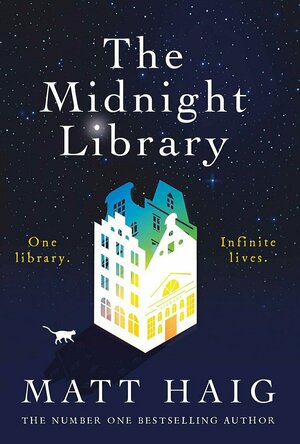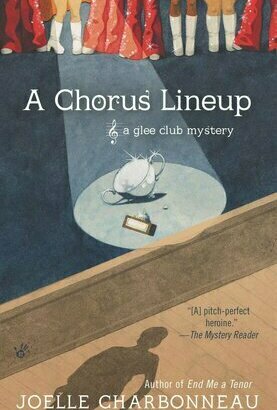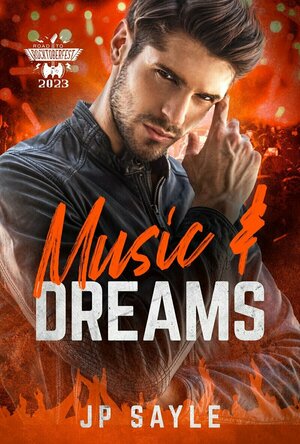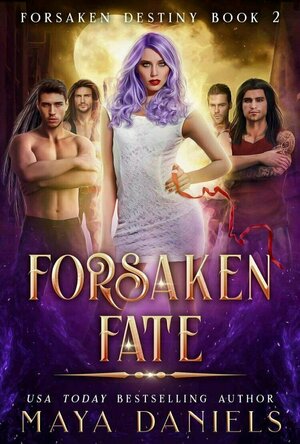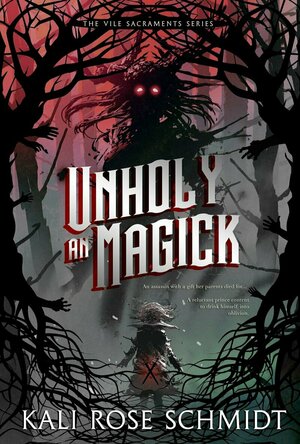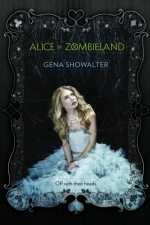Search
Search results
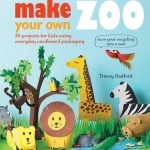
Make Your Own Zoo: 35 Projects for Kids Using Everyday Cardboard Packaging. Turn Your Recycling into a Zoo!
Book
Read about Tracey's inspiration for the book and her passion for turning recycling into craft...
Merissa (13749 KP) rated Pieces of Me (Missing Pieces #2) in Books
Jun 26, 2020
Pieces of Me is the second book in the Missing Pieces series and you need to read book one before you start on this one. It starts where book one finished and is a continuation of Justin's recovery and how Dallas is coping with everything and everyone.
Although this has the same characters and situations in it, the story is different enough to keep my attention. Finding out more about what Dallas has to cope with on the business side, plus what Justin deals with, made this all the more real for me. Life is tough without any 'easy answers' magically appearing. Dallas has to rob Peter to pay Paul and juggle his credit cards too. I loved that part, like I said, making it real.
This was a brilliant addition to the series and I thoroughly enjoyed how Dallas and Justin's story moved along at a steady pace. There is a bit more steam in this one as Justin's body and mind start to remember Dallas.
A fantastic story that has me gripped. Can't wait to continue. Absolutely recommended by me.
* A copy of this book was provided to me with no requirements for a review. I voluntarily read this book, and the comments here are my honest opinion. *
Merissa
Archaeolibrarian - I Dig Good Books!
Although this has the same characters and situations in it, the story is different enough to keep my attention. Finding out more about what Dallas has to cope with on the business side, plus what Justin deals with, made this all the more real for me. Life is tough without any 'easy answers' magically appearing. Dallas has to rob Peter to pay Paul and juggle his credit cards too. I loved that part, like I said, making it real.
This was a brilliant addition to the series and I thoroughly enjoyed how Dallas and Justin's story moved along at a steady pace. There is a bit more steam in this one as Justin's body and mind start to remember Dallas.
A fantastic story that has me gripped. Can't wait to continue. Absolutely recommended by me.
* A copy of this book was provided to me with no requirements for a review. I voluntarily read this book, and the comments here are my honest opinion. *
Merissa
Archaeolibrarian - I Dig Good Books!
Sarah (7800 KP) rated The Midnight Library in Books
Jan 2, 2021
Thought-provoking but predictable
I really enjoy Matt Haig's writing, both his fiction and his non-fiction, and I couldn't wait to read The Midnight Library - a sci-fi-esque, life affirming story about books is right up my street. And overall, this was worth the wait.
Nora is an endearing and relatable protagonist whose life hasn't turned out the way she wanted, and her list of regrets could fill a whole book (literally as we find out). She decides to end her life and winds up in the Midnight Library, a place that allows her to visit an unending number of alternative lives that resulted from her making different decisions. Now who hasn't wished they could change their past, make a different decision and wonder where they would've ended up? This book is definitely for those that have ever wished this and it's a dream I enjoyed reading.
The problem is that it's very predictable. I knew exactly how this was going to end from the very beginning and whilst the ending is heartwarming and very life affirming, it's a tiny bit of a let down. Which is a shame as the journey through Nora's lives is actually quite interesting.
There's a good message in this about living and appreciating your own life, but I just wish this wasn't so predictable.
Nora is an endearing and relatable protagonist whose life hasn't turned out the way she wanted, and her list of regrets could fill a whole book (literally as we find out). She decides to end her life and winds up in the Midnight Library, a place that allows her to visit an unending number of alternative lives that resulted from her making different decisions. Now who hasn't wished they could change their past, make a different decision and wonder where they would've ended up? This book is definitely for those that have ever wished this and it's a dream I enjoyed reading.
The problem is that it's very predictable. I knew exactly how this was going to end from the very beginning and whilst the ending is heartwarming and very life affirming, it's a tiny bit of a let down. Which is a shame as the journey through Nora's lives is actually quite interesting.
There's a good message in this about living and appreciating your own life, but I just wish this wasn't so predictable.
Mark @ Carstairs Considers (2478 KP) rated A Chorus Lineup in Books
Jul 31, 2020
Competitions Are Murder
The high school show choir Paige Marshall has been coaching has been invited to the national finals in Nashville. She expects that only complication will be the career making audition back home in Chicago she’s been invited to in the middle of the competition. But that’s before someone sabotages all the team’s costumes and band instruments. Then a murder takes place. Can Paige figure out what is going on?
It's been years since I read the first two books in this series, but I was soon back in Paige’s world thanks to reminders in the text about what had happened before. Some of them do get spoilery, so keep that in mind if you are interested in the series. Thanks to the references, I was able to fully appreciate the character growth in the regulars we saw here. The new characters were just as strong. The plot was good and kept me guessing. I was surprised by a sub-plot that took over in the final quarter, completely slowing down the momentum. But we are then flung back into the mystery for a climax that had me turning pages while it successfully wrapped everything up. It also wrapped up these characters’ arcs, so fans of this series will be able to walk away satisfied with the time we’ve spent with them.
It's been years since I read the first two books in this series, but I was soon back in Paige’s world thanks to reminders in the text about what had happened before. Some of them do get spoilery, so keep that in mind if you are interested in the series. Thanks to the references, I was able to fully appreciate the character growth in the regulars we saw here. The new characters were just as strong. The plot was good and kept me guessing. I was surprised by a sub-plot that took over in the final quarter, completely slowing down the momentum. But we are then flung back into the mystery for a climax that had me turning pages while it successfully wrapped everything up. It also wrapped up these characters’ arcs, so fans of this series will be able to walk away satisfied with the time we’ve spent with them.
Merissa (13749 KP) rated Music & Dreams (The Road to Rocktoberfest 2023) in Books
Oct 30, 2023
MUSIC & DREAMS is part of The Road to Rocktoberfest 2023, a multi-author series. We meet Lorcan and Rogan, the lead singer of a famous band, and the teacher/nanny he hired to look after his daughter. Rogan is attracted to his boss but won't act upon it. Lorcan has feelings for Rogan he is desperately trying to ignore. Until something goes wrong and Lorcan looks after Rogan, unlocking his feelings and making them obvious to everyone, including Amy, his daughter.
Oh, these two. Well, three if I include Amy, which I absolutely have to. So cute. Rogan's insecurities are completely understandable, whilst Lorcan is so very down to earth. Amy is a child who has her eyes wide open and sees everything.
I loved this story. It was everything I needed, from low angst to high steam. I just hope that we get to see the other two find their HEA too! With a smooth pace and no editing errors I noticed, this was a delightful read that kept me turning the pages. Loved every word and HIGHLY recommended by me.
** same worded review will appear elsewhere **
* A copy of this book was provided to me with no requirements for a review. I voluntarily read this book; the comments here are my honest opinion. *
Merissa
Archaeolibrarian - I Dig Good Books!
Oct 28, 2023
Oh, these two. Well, three if I include Amy, which I absolutely have to. So cute. Rogan's insecurities are completely understandable, whilst Lorcan is so very down to earth. Amy is a child who has her eyes wide open and sees everything.
I loved this story. It was everything I needed, from low angst to high steam. I just hope that we get to see the other two find their HEA too! With a smooth pace and no editing errors I noticed, this was a delightful read that kept me turning the pages. Loved every word and HIGHLY recommended by me.
** same worded review will appear elsewhere **
* A copy of this book was provided to me with no requirements for a review. I voluntarily read this book; the comments here are my honest opinion. *
Merissa
Archaeolibrarian - I Dig Good Books!
Oct 28, 2023
Merissa (13749 KP) rated Forsaken Fate (Forsaken Destiny #2) in Books
Jan 29, 2021 (Updated Aug 7, 2023)
FORSAKEN FATE is the second book in the Forsaken Destiny series and we continue with Echo. She is getting used to the idea of having multiple mates and, so long as she can still hide from dear old dad, she's not too bothered. Until she is reminded that mate number 4 could well be telling dear old dad exactly where she is. So the 'bleep' hits the fan, big time.
Tyler is still my number one guy and I'm SO happy about what happened, for him! He doesn't belong in a stony prison, so YEY, Tyler!!! But I have to say, coming in at number 2 is Xzavier. Oh, I do so love a confused male!
The pacing of this book is fast and furious, with some exceedingly funny bits in there too. There is one scene that brought a smile to my face simply because I know the feeling all too well! Talk about making me laugh!
Anyhoo, perfect pacing, an intriguing storyline with amazing characters - it really couldn't be anything else than a Maya Daniels novel. Absolutely recommended. Bring it on, Forsaken Heart!!
* A copy of this book was provided to me with no requirements for a review. I voluntarily read this book, and the comments here are my honest opinion. *
Merissa
Archaeolibrarian - I Dig Good Books!
Jan 28, 2021
Tyler is still my number one guy and I'm SO happy about what happened, for him! He doesn't belong in a stony prison, so YEY, Tyler!!! But I have to say, coming in at number 2 is Xzavier. Oh, I do so love a confused male!
The pacing of this book is fast and furious, with some exceedingly funny bits in there too. There is one scene that brought a smile to my face simply because I know the feeling all too well! Talk about making me laugh!
Anyhoo, perfect pacing, an intriguing storyline with amazing characters - it really couldn't be anything else than a Maya Daniels novel. Absolutely recommended. Bring it on, Forsaken Heart!!
* A copy of this book was provided to me with no requirements for a review. I voluntarily read this book, and the comments here are my honest opinion. *
Merissa
Archaeolibrarian - I Dig Good Books!
Jan 28, 2021
Becs (244 KP) rated An Unholy Magick in Books
Dec 2, 2019
the enemies to lovers (3 more)
the plot
the characters are relatable
there are not any "good guys" or "heroes"; everybody is a "bad guy" or "villain"
An enthralling read that will leave you wanting more
You can also find this review on my blog: bookingwayreads.wordpress.com
“The desire for power is a murderer.”
Trigger Warnings: death, injury, murder, gore, loss of a parent(s), talk of enslavement, crucification, talk of torture, talk of war, beheading, violence
Thoughts:
I haven’t read many “dark fantasy” books and An Unholy Magick really makes me want to start reading more. It was gruesome, it had gore, it was dark, and it was witchy. Everything I love in a book!
Now, this isn’t your typical “main character is the hero” sort of story. Elena Salas was a complicated, morally gray protagonist with a dark past. You could almost say she was a bit villainous with the career she took: assassin-for-hire. Elena wasn’t likable at times but with everything she had been through, she and her actions were relatable.
One thing I really liked about this story’s plot was that there was no standard “hero” or “good guys.” Everybody was considered a “bad guy” or a “villain” in their own way. This really made the whole story more realistic. More relatable to today’s standard’s. And with the tasks and complications Elena encounters at what seems like every turn, it makes it seem like the plot is out to tear her down. This causes an extremely headstrong protagonist to form in a mere few chapters.
Now, if you are anything like me and always crave a bit of romance in a fantasy book, you totally get it with An Unholy Magick. There’s a bit of a love triangle and enemies to lovers situation between three (3) of the main characters – Elena, Matvey, and Zoran. I was seriously rooting for all of them and I absolutely despise love triangles. So that was a bit of a first for me! All three of these characters also shared a common theme: pain. At some point in their lives, they had something traumatic happen to them. To me, this just really put the icing on the cake. Even making these three characters along with Elena’s brother, Jamie, all the more likeable, relatable, and realistic.
An Unholy Magick was imaginative, fun, and unique. The world was constructed beautifully and kept making me want more of it. The magick system was also constructed in a way that made it understandable from the get go. The only reason why I didn’t rate this enchanting book a five out of five stars, is due to the beginning being a bit difficult to get into because it read awfully slow. Also, because the format I received the book in was all wanky and hard to read at times. It was an eARC, so that could be why. But other than that, this complex and unique read is one that I feel most will enjoy!
“The desire for power is a murderer.”
Trigger Warnings: death, injury, murder, gore, loss of a parent(s), talk of enslavement, crucification, talk of torture, talk of war, beheading, violence
Thoughts:
I haven’t read many “dark fantasy” books and An Unholy Magick really makes me want to start reading more. It was gruesome, it had gore, it was dark, and it was witchy. Everything I love in a book!
Now, this isn’t your typical “main character is the hero” sort of story. Elena Salas was a complicated, morally gray protagonist with a dark past. You could almost say she was a bit villainous with the career she took: assassin-for-hire. Elena wasn’t likable at times but with everything she had been through, she and her actions were relatable.
One thing I really liked about this story’s plot was that there was no standard “hero” or “good guys.” Everybody was considered a “bad guy” or a “villain” in their own way. This really made the whole story more realistic. More relatable to today’s standard’s. And with the tasks and complications Elena encounters at what seems like every turn, it makes it seem like the plot is out to tear her down. This causes an extremely headstrong protagonist to form in a mere few chapters.
Now, if you are anything like me and always crave a bit of romance in a fantasy book, you totally get it with An Unholy Magick. There’s a bit of a love triangle and enemies to lovers situation between three (3) of the main characters – Elena, Matvey, and Zoran. I was seriously rooting for all of them and I absolutely despise love triangles. So that was a bit of a first for me! All three of these characters also shared a common theme: pain. At some point in their lives, they had something traumatic happen to them. To me, this just really put the icing on the cake. Even making these three characters along with Elena’s brother, Jamie, all the more likeable, relatable, and realistic.
An Unholy Magick was imaginative, fun, and unique. The world was constructed beautifully and kept making me want more of it. The magick system was also constructed in a way that made it understandable from the get go. The only reason why I didn’t rate this enchanting book a five out of five stars, is due to the beginning being a bit difficult to get into because it read awfully slow. Also, because the format I received the book in was all wanky and hard to read at times. It was an eARC, so that could be why. But other than that, this complex and unique read is one that I feel most will enjoy!
BobbiesDustyPages (1259 KP) rated Alice in Zombieland - White Rabbit Chronicles in Books
Jul 23, 2017
This was bad. read in 2013
Contains spoilers, click to show
I have to say this is one of the most misleading titles I have ever seen. I was really excited to read this book it sounded interesting and I've been a fan of both Alice in Wonderland and Zombies since I was just a kid so this seemed right up my alley..too bad that's not what I got at all. I read a little less than half the book and I just couldn't make myself finish it it was causing me actual pain.
One of the things that really got to me that actually had nothing to do with the plot was that it was so damn preachy and that was only in the first chapter, I don't mind books that talk about religion or a charter having a set religion but please do not make me feel like I'm being tricked in to going to church with out warning.
The only thing that this book had to do with Alice in Wonderland was a cloud that looked like a white rabbit, the name Alice and a few very small things.
Also, it was like the author looked up every cliche for a YA book and every teenage cliche from books and movies,(the perfect popular girl, the stunningly pretty but I'm so average protagonist, and the dark bad boy and slut shaming.)threw them in a blender and came out this.
Alice or Ali could have been a strong female lead but she came off as a mean, selfish, and a whiny person that I did not connect with at all, actually the only character I kind of like was her little sister Emma..and that didn't last long.
Cole was absolutely horrid, please stop making these alpha male asshole characters in YA books it's not clever or cute or romantic it down right unhealthy.
The writing was about average and since I know nothing about this author it doesn't really make me want to give any of her other works even a chance if this is what I'm in for.
The only thing I liked about this book was the title which wasn't even original and the cover art.
So all in all if you're looking for:
A take on Alice in Wonderland
Zombies and everything that comes with them
A teen girl kicking ass and killing the undead
Actual zombies at all
A good book
Then move along and don't waste your money because you'll get none of that here.
One of the things that really got to me that actually had nothing to do with the plot was that it was so damn preachy and that was only in the first chapter, I don't mind books that talk about religion or a charter having a set religion but please do not make me feel like I'm being tricked in to going to church with out warning.
The only thing that this book had to do with Alice in Wonderland was a cloud that looked like a white rabbit, the name Alice and a few very small things.
Also, it was like the author looked up every cliche for a YA book and every teenage cliche from books and movies,(the perfect popular girl, the stunningly pretty but I'm so average protagonist, and the dark bad boy and slut shaming.)threw them in a blender and came out this.
Alice or Ali could have been a strong female lead but she came off as a mean, selfish, and a whiny person that I did not connect with at all, actually the only character I kind of like was her little sister Emma..and that didn't last long.
Cole was absolutely horrid, please stop making these alpha male asshole characters in YA books it's not clever or cute or romantic it down right unhealthy.
The writing was about average and since I know nothing about this author it doesn't really make me want to give any of her other works even a chance if this is what I'm in for.
The only thing I liked about this book was the title which wasn't even original and the cover art.
So all in all if you're looking for:
A take on Alice in Wonderland
Zombies and everything that comes with them
A teen girl kicking ass and killing the undead
Actual zombies at all
A good book
Then move along and don't waste your money because you'll get none of that here.
Lindsay (1793 KP) rated Abigail And The North Pole Adventure in Books
Feb 15, 2018
Abigail and the North Pole Adventure by Tali Carmi This is another quick read. It good for children. Children learn to use their imagination. It teaches your kids or children values and about giving a helping hand. It also teaches your children about making friendships. Each book tell you about a different place and culture. You learn about the animals and the habit of the folk that live in that area.The images are down really well. You can see what the description is talking about. This is good for children ages for young children. Parent can read this to their children. Kids can learn to read with these beginner books. Pictures are quite nice and understandable. This is also a good book for children that enjoy adventure books.I would recommend this book and this series to young readers and children learn to read. If you would like to check out my other review on a book in this series. Here the review to Abigail & Tropical Island adventure.

Bluefire Reader
Book
App
Bluefire Reader is the best way to read Adobe® Content Server protected eBooks on your iPhone, iPad...

